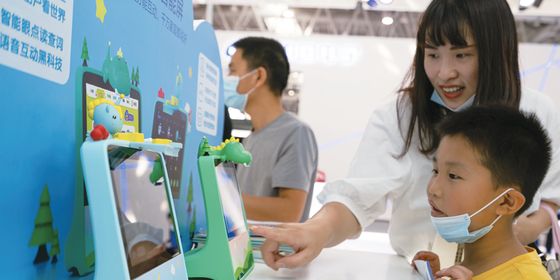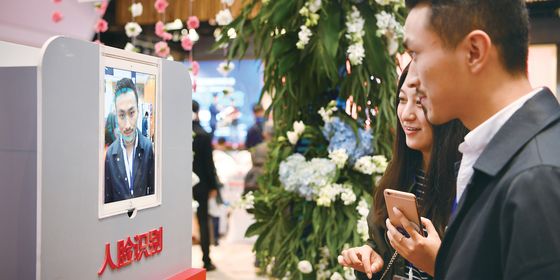Tech start-ups “revolutionary” product launch fails to impress
Beijing startup Smartisan Technology’s (锤子科技) “revolutionary” product launch at the Bird’s Nest Stadium—which had promised to “redefine the concept of the personal computer for the next decade”—has instead earned the scorn of netizens who say the tech company has instead “redefined the word ‘redefine.’”
The May 15 product launch was for Smartisan’s newest R1 phone (坚果R1) as well as the Smartisan TNT Station, which, strictly speaking, is not an actual standalone computer, as it has to be connected with the R1 to perform. Like the Samsung DeX, it takes apps from the phone onto a big screen.
Founded in 2012 by Luo Yonghao, a former “internet famous” English teacher at New Oriental Education, claims to be a developer of the “new generation of intelligent digital product design.” It received 70 million RMB in investment in 2013, and began producing mobile phones in 2015, targeting the youth market.
So how does the TNT Station stack up? Its first “revolutionary” feature is called the 水晶球 (Crystal Ball), which allows the computer to predict next moves when the user is making presentations. This allows the computer to suggest possible layouts, pictures, and other media elements the user might want to put in.
The second highlight, 发牌手 (Card Dealer), allows people to search for information from different search engines and display all the (surviving) results on the screen at once.
The last and supposedly most disruptive feature is the TNT, or Touch and Talk, is a voice input system that allows the user to enter text and giving instructions to the computer without a keyboard. Other highlights including multi-touch functions and shortcut keys on both sides of the screen.
Sounds pretty cool, huh? Yet the tech community is none too thrilled with these new features. Revolutionary means subversion, more specifically in this case, the overturn of the old application methods, technical specifications and conformational designs. And it also has to be progressive, can be accepted by the public, can replace the old,” wrote one blogger on iFeng. “TNT Station is not a revolutionary product.”
Technology enthusiasts also pointed out that these new features were not even as efficient as claimed: Voice input, for instance, requires remembering a number of color codes and fonts that the program has replaced QWERTY-style keyboards with. “There’s a reason why voice input has not become mainstream and still [mainly] serves as an alternative for people who have disabilities,” wrote Sohu blogger 互联网观察mp.
Ordinary folks, predictably, had different focuses for their complaints, claiming: “Imagine when you are working on a project and then the [program] started dictating ‘Fonts need to be pretty! The logo needs to be big! I want a red outline and bold title! And then you won’t need to do any work.”
Infamously, Luo had asked people to bring diapers to the launch because “You may wet your pants after seeing these new products.” This is now a meme among netizens who claim said diapers only came into use after being shown the price, which was 9,999 RMB.











